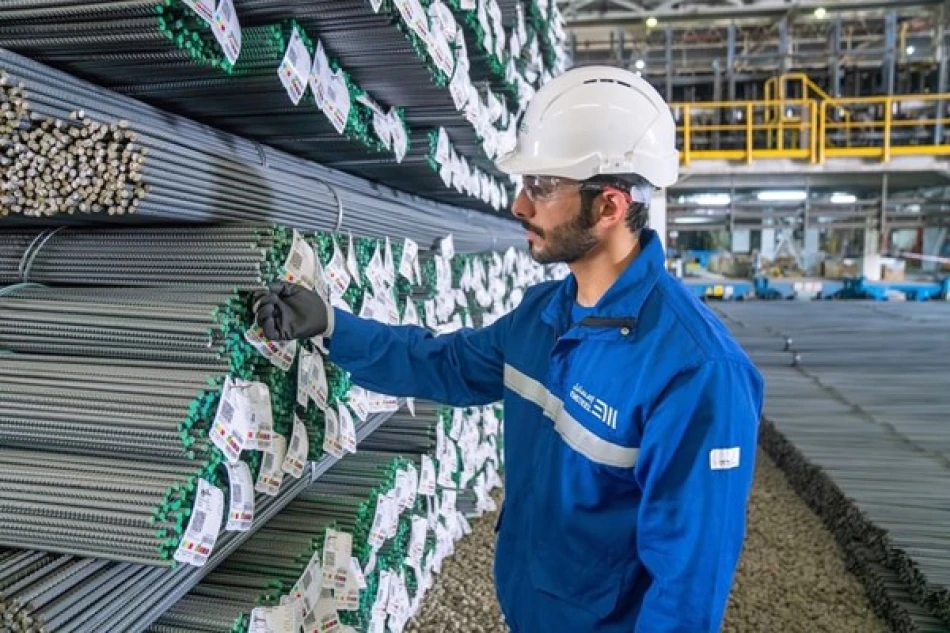
Pioneering Green Steel: Emsteel Delivers First Shipment of Hydrogen-Produced Rebar to Aldar
UAE Breaks Ground with World's First Green Hydrogen Steel Mosque
The United Arab Emirates has achieved a construction industry milestone with the delivery of the world's first green hydrogen-manufactured steel for a zero-emission mosque in Abu Dhabi. This breakthrough positions the UAE as a global pioneer in sustainable construction materials and signals a potential transformation in how the world builds carbon-neutral infrastructure.
Historic Delivery Marks Regional First
Emirates Steel (Emsteel) has delivered the inaugural shipment of green hydrogen-produced reinforcement steel to real estate developer Aldar Properties for construction of a zero-emissions mosque on Yas Island's Sustainable City project. The delivery makes Aldar the first real estate development company in the Middle East and North Africa region to incorporate this revolutionary sustainable material into construction operations.
The steel is manufactured using hydrogen from Emsteel's pioneering green hydrogen pilot project, launched in partnership with renewable energy company Masdar in 2023. This collaboration represents a critical step toward enabling the mosque to achieve carbon neutrality certification under the Leadership in Energy and Environmental Design (LEED) rating system.
Technology Reshaping Steel Production
Breaking the Carbon Dependency
Traditional steel production relies heavily on coal-fired blast furnaces, making the industry responsible for approximately 7% of global carbon emissions. Green hydrogen steel production replaces coal with hydrogen produced from renewable energy sources, eliminating carbon dioxide emissions from the manufacturing process entirely.
This technological shift addresses one of construction's most carbon-intensive materials. Steel production typically generates 1.85 tons of CO2 per ton of steel produced, making green alternatives crucial for achieving net-zero construction goals.
Regional Leadership in Clean Technology
The UAE's move mirrors similar initiatives in Sweden, where SSAB has pioneered fossil-free steel, and follows China's growing investments in hydrogen steel technology. However, the Emirates' focus on religious and cultural infrastructure demonstrates how sustainable materials can integrate into traditional architectural projects, potentially accelerating broader adoption across the region.
Market Implications and Investment Potential
Saeed Ghumran Al Remeithi, CEO of Emirates Steel Group, emphasized that this achievement reflects the company's commitment to advancing sustainability across industrial sectors while contributing to the UAE's transition toward a low-carbon economy. The partnership with Aldar represents a crucial step toward adopting green steel in future residential, commercial, and public infrastructure projects.
For investors and industry stakeholders, this development signals several key trends: The UAE is positioning itself as a testing ground for next-generation sustainable construction materials, potentially creating new export markets for green steel technology. Construction companies worldwide are likely monitoring this project's cost-effectiveness and scalability for their own carbon reduction strategies.
Scaling Sustainable Construction
The mosque project serves as a proof-of-concept that could influence the UAE's ambitious infrastructure pipeline, including preparations for COP28 and the country's Net Zero by 2050 strategic initiative. Success here could accelerate green steel adoption across the region's construction boom, particularly in Saudi Arabia's NEOM project and Qatar's ongoing development initiatives.
Al Remeithi noted that this partnership represents a qualitative shift in the construction sector, highlighting the importance of using innovative, locally-manufactured materials to achieve national climate goals while shaping the future of urban development. The emphasis on local production also addresses supply chain resilience concerns that have plagued global construction markets since 2020.
The project's success will likely determine whether green hydrogen steel becomes a standard specification for sustainable construction projects across the Gulf region, potentially creating a new benchmark for carbon-neutral building materials in one of the world's most construction-active regions.
Most Viewed News

 Layla Al Mansoori
Layla Al Mansoori






